What I Noticed Today (Judges 15-17)
Judges 15-16
Chapters 15-16 continue the story of Samson.
Judges 15

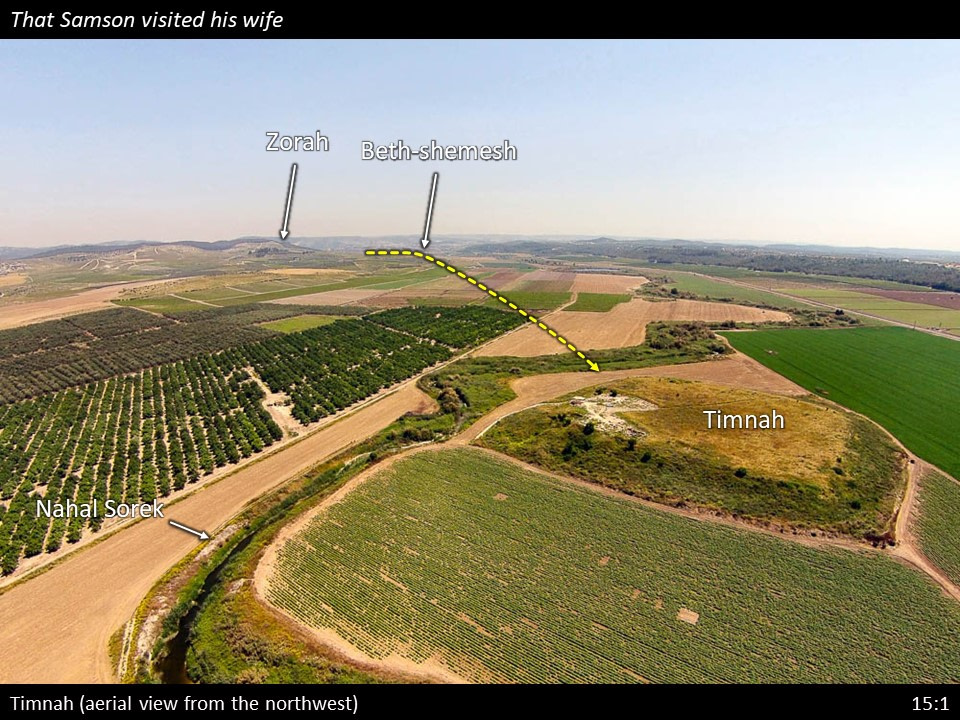

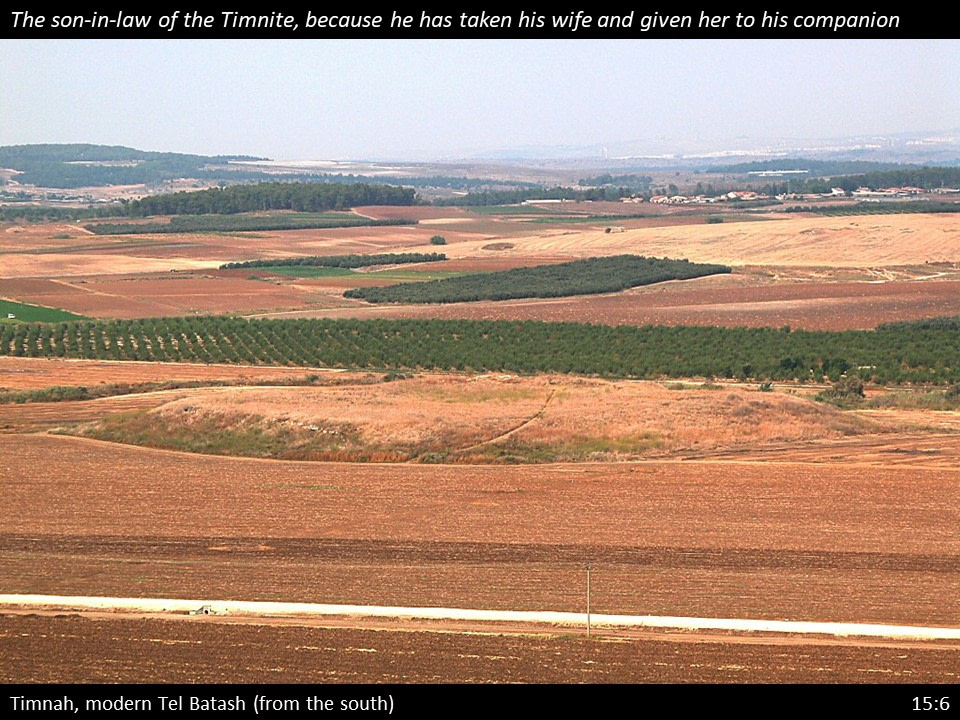
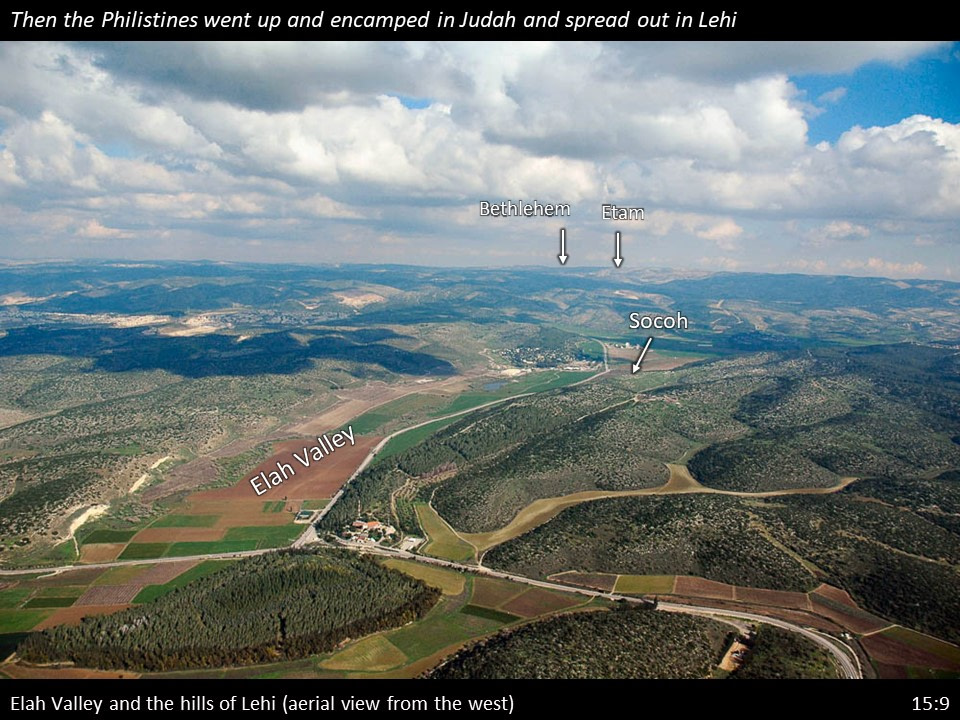

In verses 1-5, during the wheat harvest (May), Sampson returned to see his wife bringing a goat as a present for his father-in-law. His father-in-law said he thought Sampson hated her (divorce language Deuteronomy 24:3), so he had given her to another man.
- When he found out his fiancé had been given to another man, Samson burned the Philistine’s crops and orchards down.
In verses 6-13, the Philistines came against Judah looking for Samson.
- The Philistines found out that Sampson had destroyed their crops because of Sampson’s wife had been given to another man. The Philistines went to Sampson’s wife and her father and burned them to death.
- This angered Sampson even more, and he took revenge by slaughtering more of the Philistines.
- The Philistines then went and attacked Lehi, a town in Judah, in revenge for Sampson’s killing of the Philistines.
- 3,000 men of Judah went to Samson at the cave of Etam, captured him, tied him up, and turned him over to the Philistines.
In verses 14-20, Sampson kills more Philistines.
- When Sampson arrived in Lehi, the Spirit of the Lord came over Sampson, and he broke free of the ropes.
- Samson killed 1,000 of the Philistines with the jawbone of a donkey and escaped the Philistines.
- Sampson gave credit to the victory over the Philistines to the Lord.
- Sampson judged Israel for 20 years.
Judges 16
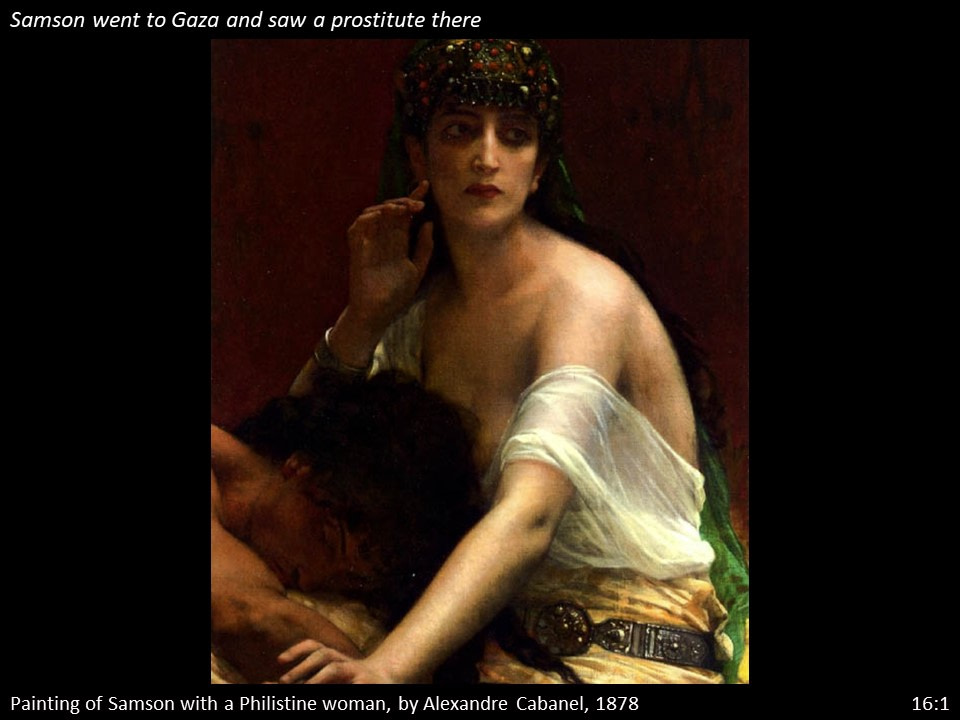
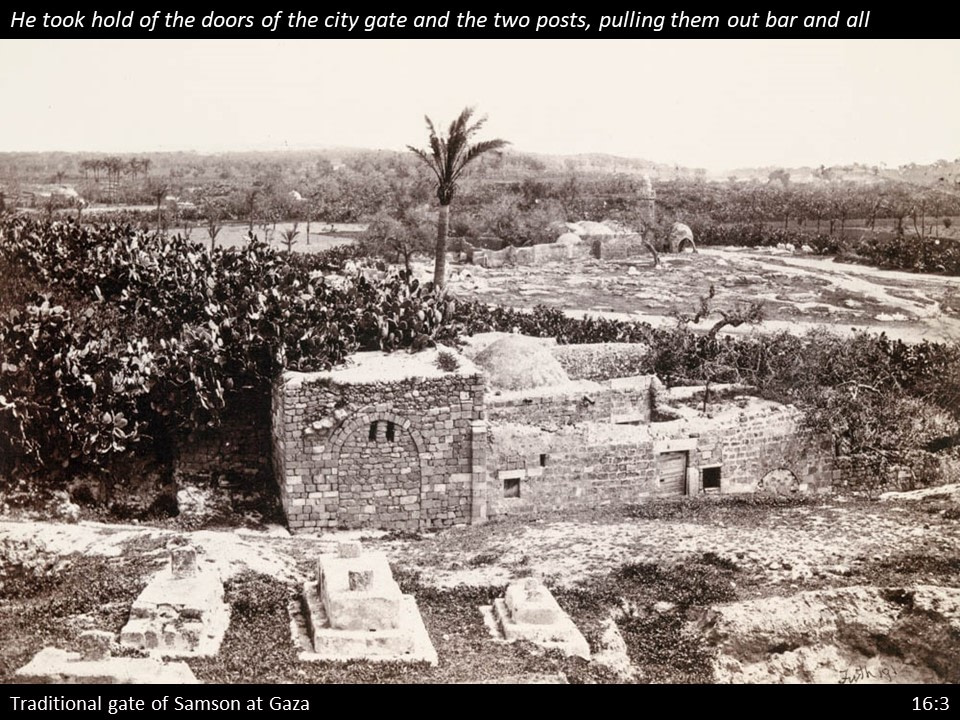
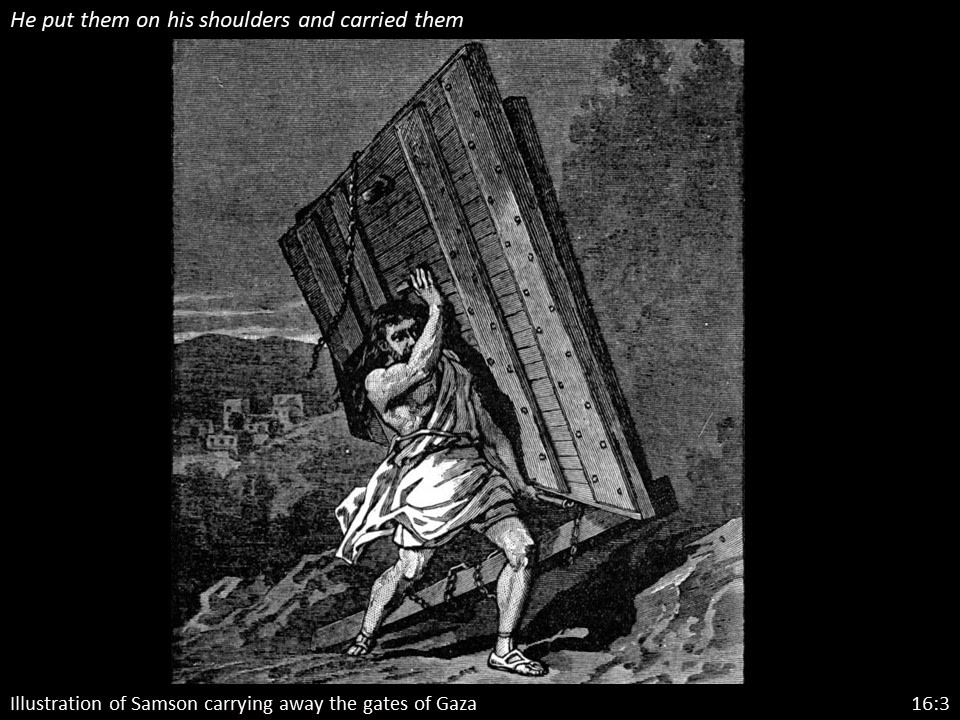


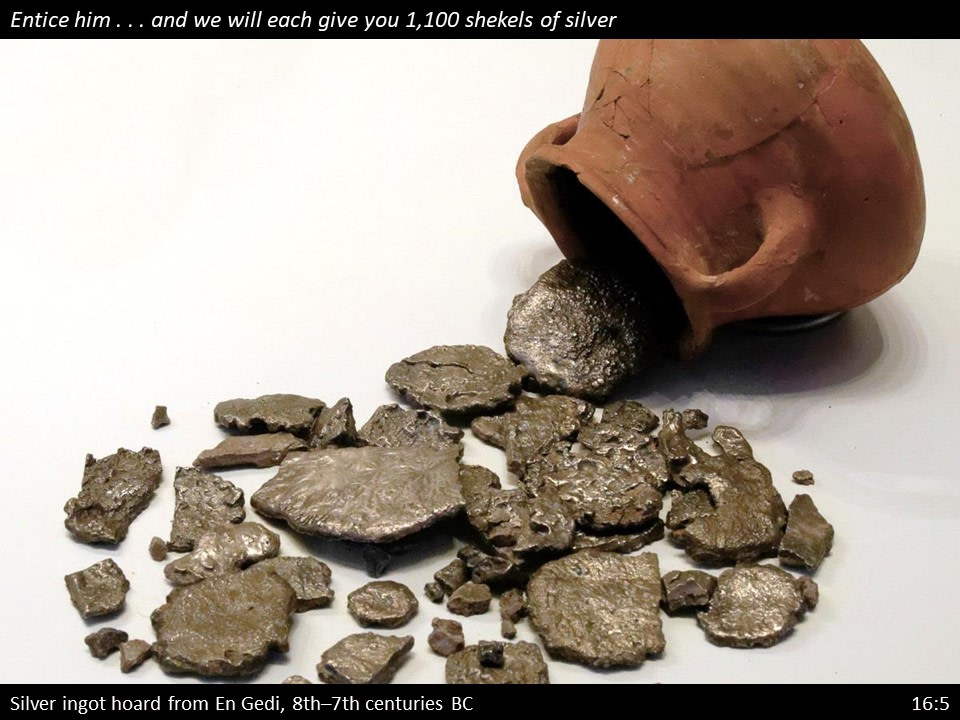
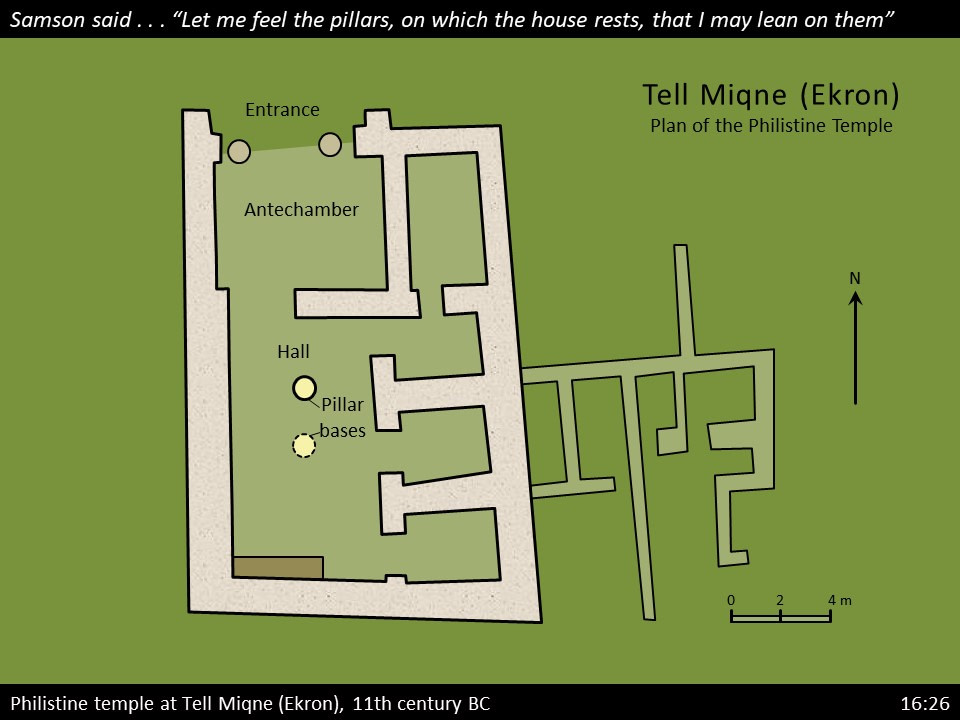
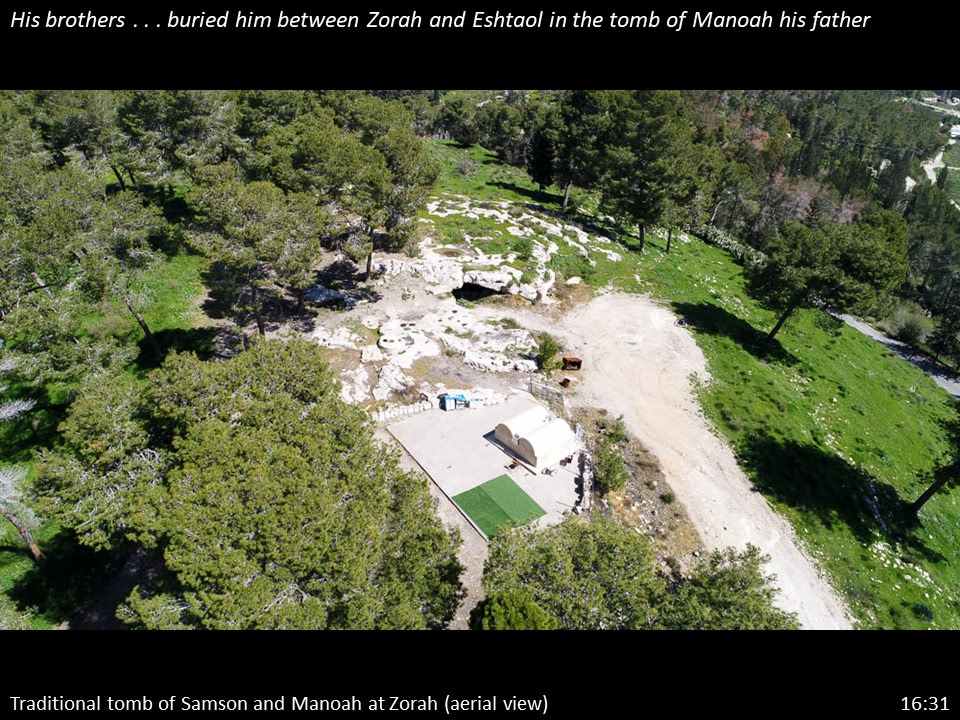
In verses 1-3, Samson traveled deep into the Philistine territory to Gaza (about 35 miles from his hometown of Zorah), where he slept with a prostitute who deceived him (much like his fiancé).
- Sampson stayed in bed until midnight. Realizing he was surrounded by men who wanted to kill him at the city gate, he took the doors of the city gate and pulled them out of the ground, put them on his shoulders, and carried them to the top of the mountain overlooking Hebron.
Note: Scholars disagree whether Sampson carried the city gates of Gaza all the way to a mountain overlooking Hebron, which was 37 miles away. The alternative explanation (that makes more sense to me) is that Sampson carried the gate to a nearby mountain east of Gaza (El Montar) that faced Hebron.
In verses 4-20, sometime later, Sampson fell in love with a third Philistine woman, Delilah.
- Delilah was approached by 5 Philistine leaders (1 Samuel 6:17-18) who offered her 1,100 pieces of silver each if she would betray him.
Note: 5,500 pieces of silver was an enormous amount of money when you realize that an ordinary slave was 30 pieces of silver.
- Delilah tried three separate times to get Sampson to tell her the secret of his great strength.
- Delilah nagged him day and night until she wore him out (v. 16). Samson eventually told her the truth about the source of his strength – his uncut hair.
- She cut it while he was sleeping, and the Lord left him.
In verses 21-31, the Philistines captured Sampson and put him in prison.
- The Philistines gouged out his eyes, placed him in bronze shackles, and took him to prison in Gaza.
- They forced Sampson to grind out the grain in prison.
- His final act as is hair grew out was to pray to God to restore his strength so he could take his revenge on the Philistines.
- God did restore his strength, and Samson pulled down the pillars of the temple to Dagon while the Philistines were celebrating.
- Samson died that day, along with 3,000 men and women who were in the temple.
- His brothers and father came and carried his body back to Zorah and buried him in his father’s tomb.
Note: Samson had everything going for him. He had the spirit of the Lord in him, yet he kept violating the Nazarite vow, especially with regard to foreign women. This attraction to women who worshipped foreign gods proved to be a snare for him all his life.
Note: There are some interesting parallels between Samson and Jesus:
- Both births were foretold by an angel
- Both were separated to God from the womb.
- Both were Nazarites.
- Both went in the power of the Holy Spirit.
- Both came to save their people.
- Both were rejected by their people.
- Both destroyed (or will destroy) their enemies.
Judges 17-21
Judges 17-21 represent an epilogue to the book. They describe the moral and spiritual decline of the people of Israel. From a historical standpoint, the events of Judges 17-21 occurred earlier. Given the mention of Moses’ grandson and the ark at Bethel, the events of Judges 17-18 probably took place during the days of Othniel, the first judge of Israel.
Judges 17

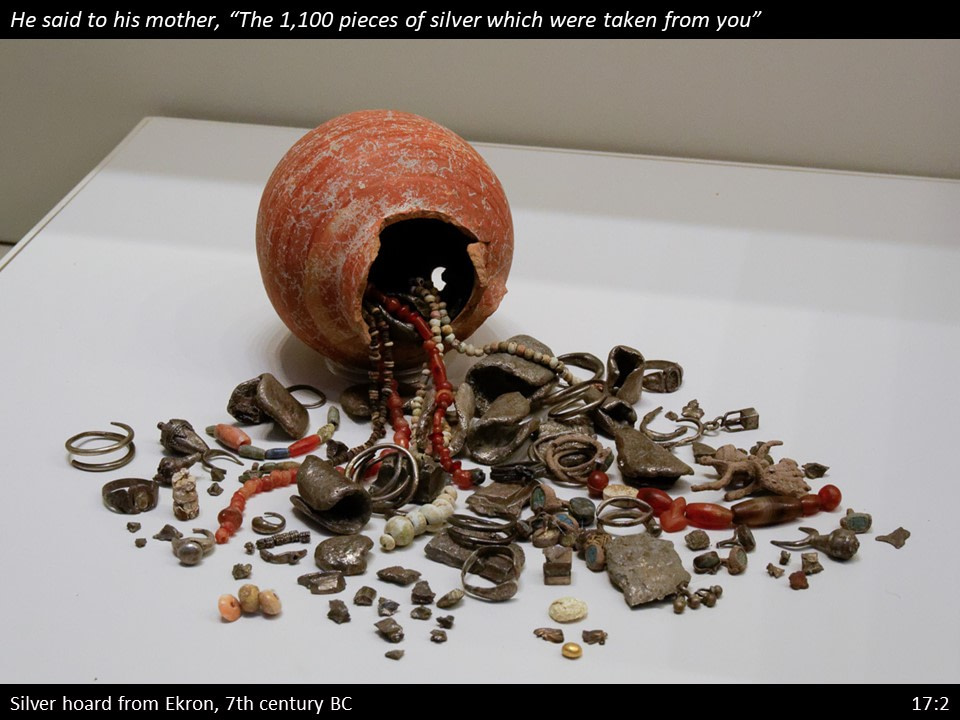
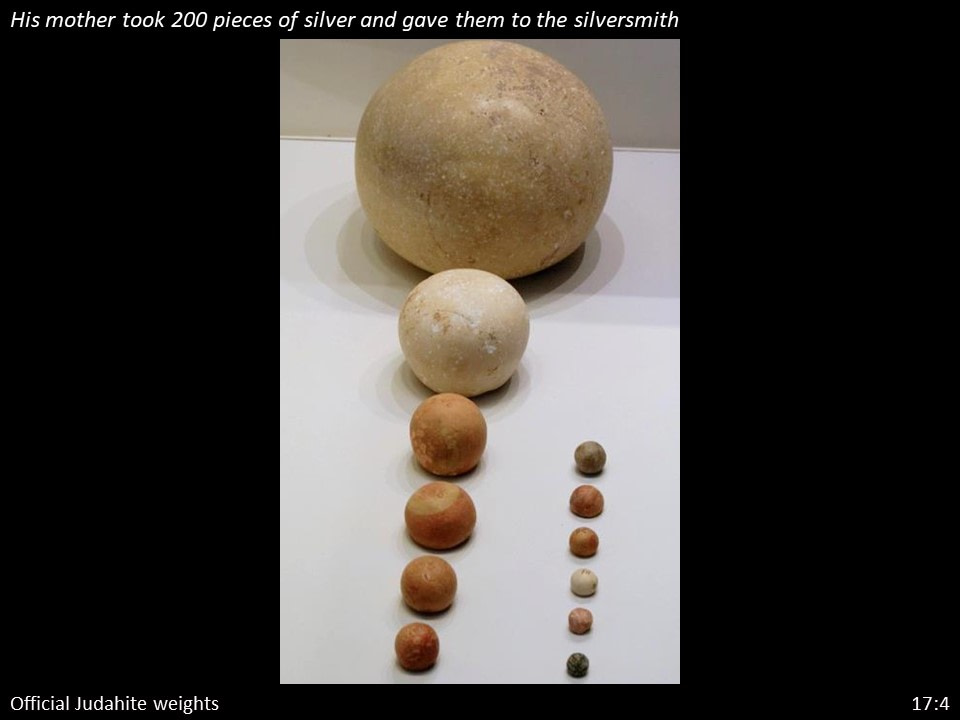
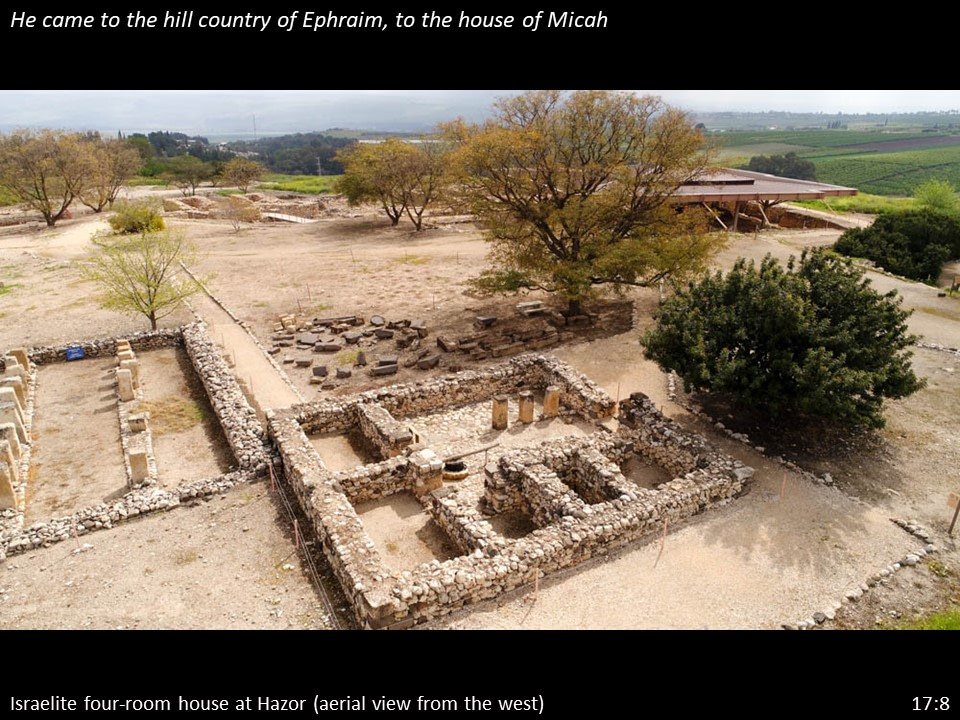
Judges 17 relates the story of Micah from Ephraim.
Note: Micah means, “Who is like Yahweh?”
- Micah stole 1,100 pieces of silver (almost 28–lbs.) from his mother but admitted to the theft when he heard about his mother’s curse.
- Then she said her son was “blessed by the Lord”! The mother said the money was dedicated to the Lord, but took some of the silver and had a silversmith make an idol.
Note: the 200 shekels of silver (about 5 pounds) was the equivalent of several thousand dollars since the price of a household slave was 30 pieces of silver. Such household idols were outlawed in Deuteronomy 12.
In verses 7-13, in addition to making a shrine and having household idols, Micah ordained one of his own sons to be the household priest.
- Then, when a young Levite came along, Micah hired the young Levite to be his household priest, thinking that the Lord would bless him because he had his own priest.
- The priest was from Bethlehem – the far end of the country.
Note: In all likelihood, the description that he was “young” indicates that he was under 30 years old and not yet eligible to serve in the temple. In Judges 18:30, we learn that the young priest’s name is Jonathon, and he is Moses’ grandson!
Note: Judges 17:6 says “in those days…everyone did what was right in their own eyes.” This was so true in both in the case of Sampson chasing after foreign women who worshipped false gods, and Micah who thought he could build his own religious shrines and make idols, and secure God’s blessing by hiring a young man to be his personal priest.
Some thoughts for further consideration:
- It is so easy for us to be led into sin! As we see with Samson, one sin led to another, and another until it cost him his eyes and his life. Yes, he accomplished much for God and his people, but how much more might he have accomplished had he remained true to God. How much more might we accomplish if we remain true to God?
- How are we doing today? Does the phrase “everyone does what is right in their own eyes still ring true”? I think it does. Especially here in America, we are experiencing a wave of moral relativism where people think whatever is true for them is perfectly ok, with no thought to God, and His best for us!
What did you notice in your study today? Feel free to visit the website and leave a question or a comment.

